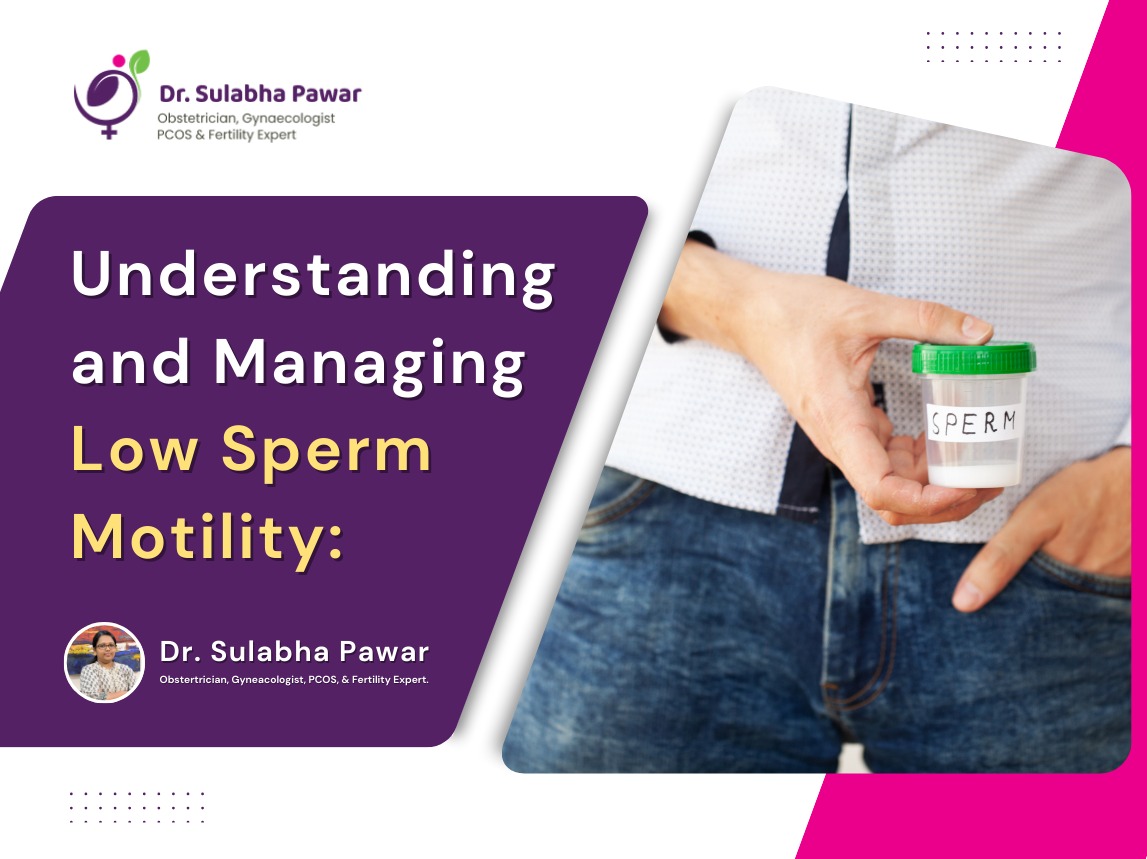Understanding and Managing Low Sperm Motility: Causes, Treatments, and Lifestyle Tips - Dr. Sulabha Pawar
Introduction
- Opening with empathy: Briefly discuss the common challenges couples face when encountering fertility issues, and introduce low sperm motility as a significant yet often treatable concern.
- Overview of male fertility: Explain what sperm motility is, its importance in conception, and how it impacts fertility.
What is Low Sperm Motility?
- Definition: Describe what sperm motility means, the ideal motility rate for conception, and the criteria for diagnosing low motility.
- Types of sperm motility issues: Differentiate between progressive and non-progressive motility and how each affects fertility.
Causes of Low Sperm Motility
- Lifestyle factors
- Smoking, excessive alcohol consumption, poor diet, lack of exercise, and exposure to toxins.
- Medical conditions
- Varicocele, hormonal imbalances, infections, and genetic factors.
- Environmental and occupational factors
- Exposure to heavy metals, radiation, and chemicals, which can reduce sperm quality.
- Age and other biological factors
- How age and underlying health issues might impact sperm health.
Diagnosing Low Sperm Motility
- Initial screening: Physical exams and semen analysis.
- Advanced tests: Sperm DNA fragmentation test, hormone evaluations, and genetic tests, when necessary.
Treatment Options for Low Sperm Motility
- Lifestyle Modifications
- Dietary changes: Emphasize the role of a balanced diet rich in antioxidants, vitamins, and minerals that can improve sperm health.
- Exercise and weight management: Benefits of regular physical activity.
- Avoidance of toxins: Reducing exposure to harmful substances like pesticides and chemicals.
- Medications and Supplements
- Common medications (clomiphene citrate, HCG injections) and supplements (zinc, selenium, folic acid, vitamins C, D, and E) known to support motility.
- Medical Procedures
- Intrauterine Insemination (IUI): How IUI can bypass certain motility issues by placing sperm directly into the uterus.
- In Vitro Fertilization (IVF) with Intracytoplasmic Sperm Injection (ICSI): Details on how ICSI can help in cases of severe motility issues by injecting a single sperm directly into the egg.
Advanced Techniques and Emerging Research
- New treatments and research: Mention promising new research in sperm motility treatments, such as stem cell therapy and antioxidants.
- Male fertility-focused interventions: Therapies specifically targeting sperm motility improvements.
Lifestyle Tips to Improve Sperm Motility
- Stress management: Importance of mental well-being, stress reduction techniques like meditation, yoga, and counseling.
- Sleep and hydration: The role of good sleep and adequate water intake in overall sperm health.
- Avoiding overheating: Effects of frequent hot tubs, tight underwear, and laptops on sperm production.
FAQs on Low Sperm Motility
- Can diet alone improve sperm motility?
- How long does it take to see results from lifestyle changes?
- Are there natural remedies that can help?
- When should couples consider seeing a fertility specialist?
Conclusion
- Positive outlook: Reinforce that low sperm motility is often manageable with the right treatments and lifestyle adjustments.
Encouragement for proactive health: Motivate readers to seek professional guidance and make necessary lifestyle changes for improved fertility.




